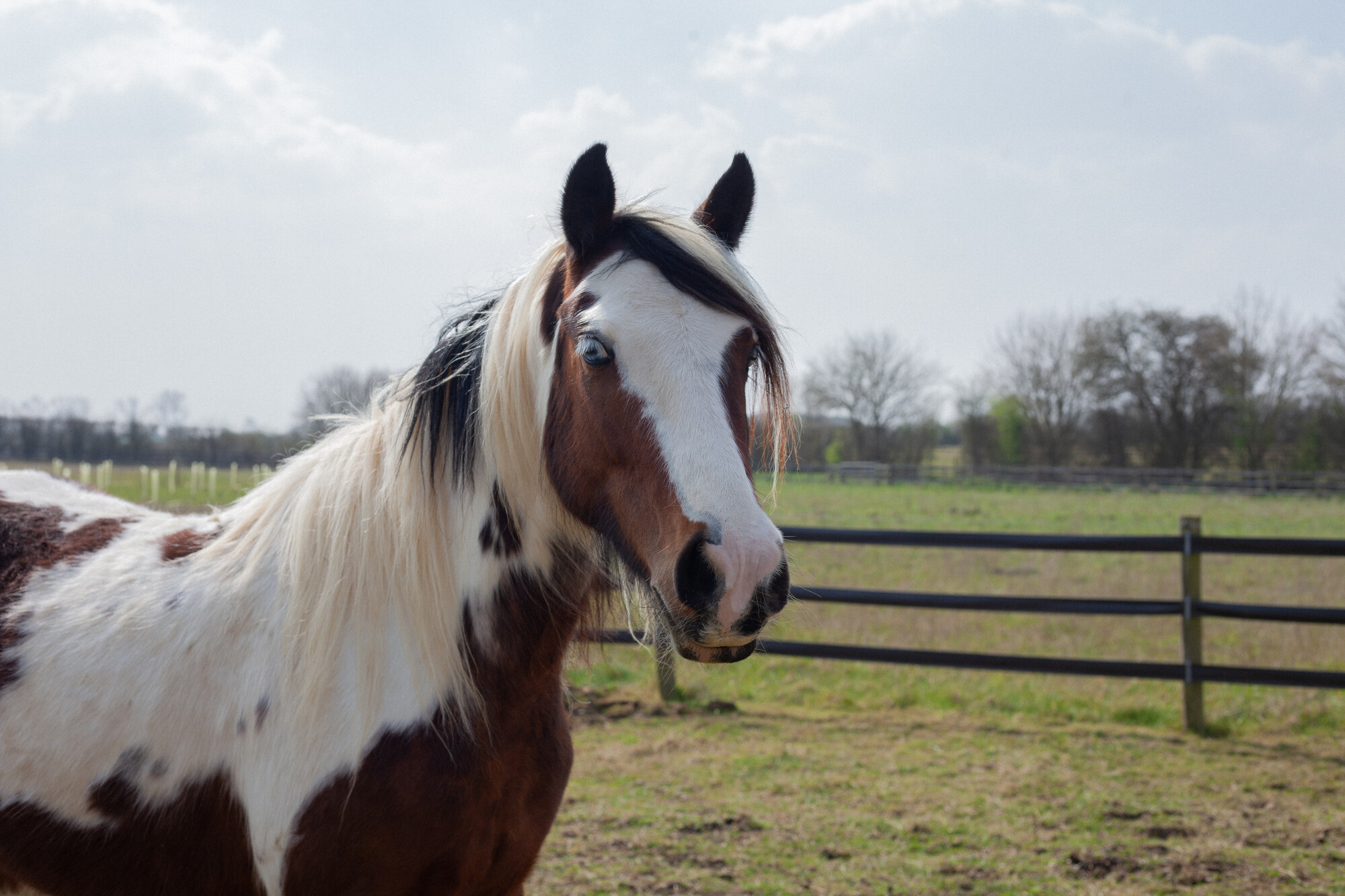
Equine flu (equine influenza)
Equine flu is a highly contagious respiratory disease that affects horses, ponies and donkeys.
Equine flu, or equine influenza, is a contagious viral respiratory disease that causes flu-like symptoms. It is widespread and highly infectious within the UK, so it's important to be able to recognise the signs in your horse.
If you think your horse is infected, book an appointment with your vet. As it's highly contagious between horses, every effort should be made to isolate your horse, and strict hygiene measures should be put in place to minimise the risk of further spreading.
Equine flu symptoms
If your horse has equine flu, they may show symptoms such as:
- a high temperature over 39.5°C
- a husky cough
- a clear, watery nasal discharge, which turns thick and green in colour after four to five days
- loss of appetite
- lethargy (tiredness)
- swollen glands around their jaw
Equine flu can also cause your horse to become weak, making them vulnerable to secondary infections such as pneumonia. It's important to seek veterinary care as soon as possible if your horse shows signs of equine flu.
Note
Getting to know your horse's regular temperature will allow you to spot inconsistencies when your horse may be feeling unwell.
How equine flu is spread
Equine flu is an airborne virus. When an infected horse coughs or sneezes, the virus is released into the air, where it can be inhaled by other horses. The virus can also be spread indirectly through your horse's stable, equipment, feed, water buckets, grooms or even handlers and vets.
Because of this, strict isolation measures should be put in place to prevent infecting other horses.
Equine flu treatment
Similar to flu in people, there is no specific medication to cure equine flu. Instead, your horse will need plenty of rest and supportive care from your vet.
It's also best to make sure your horse's stable is well ventilated and free from dust, as exposure to dust can cause their airways to become more inflamed. This puts them at risk of developing further respiratory conditions.
The prognosis for horses infected with equine flu is usually good, however it may take several weeks or even longer before your horse returns to full health. If your horse works or competes, speak to your vet before returning to work, as stress or working too soon can cause a relapse.
Equine flu vaccinations
We recommend vaccinating your horse routinely, which covers the most common strains of equine flu. Even if your horse does not leave their yard or field, they can still catch the virus from other horses. While the vaccine cannot guarantee full immunity, it is the most effective way to decrease the risk.
Vaccinated horses are also likely to recover quicker.
Note
Vaccinations are compulsory for horses competing in most equestrian sports.
Equine flu vaccination programme
Most horses require a booster vaccination either annually or every six months. If your horse misses their booster, they will need to restart their vaccinations.
We recommend the following vaccination programme for an unvaccinated horse, or for a horse who is restarting their course:
- A second injection between 21 and 60 days after their first
- A third injection between 150 and 215 days (roughly five months) after their second – 150 days is ideal
For competing horses, boosters will likely be required every six months but always check with your governing body or show organisers.
Preventing equine flu from spreading
Equine flu has an incubation period (the time between catching the virus and showing symptoms) of one to five days, meaning it can spread rapidly. When bringing new horses onto your yard, you should always isolate them for a minimum of 21 days to prevent the spreading of illnesses such as equine flu.
If your horse has equine flu, or if there's an outbreak on your yard, it's important to put strict hygiene measures in place prevent the virus from spreading between horses. You can do this by:
- isolating any infected horses until your vet confirms they are no longer infected. This could be for up to 14 days. Ideally, horses who are infected should be separated from other horses by at least 10 metres.
- carefully monitoring any horses that have been in contact with those infected, by checking their temperature daily and looking for symptoms. You should also avoid travelling with your horse.
- wearing protective overalls and gloves when handling your horse
- disinfecting your hands, boots and any equipment used after handling an infected horse
- avoiding handling horses other than your own. If you do need to handle other horses, wash and sanitise your hands thoroughly before and after.
- not sharing feeding buckets, water troughs, grooming kits and other equipment
Daily biosecurity measures should also be followed on your yard to prevent infections or diseases from spreading, especially when introducing a new horse.
Note
Remember to provide plenty of enrichment for horses in isolation so that they can mimic their natural behaviour as much as possible.
Can humans get equine flu?
According to the World Organisation of Animal Health, horse flu has been known to infect people in experimental settings, but no people have become ill.
Page details
Reviewed
• 6 October 2023
Next review
• 6 October 2026





